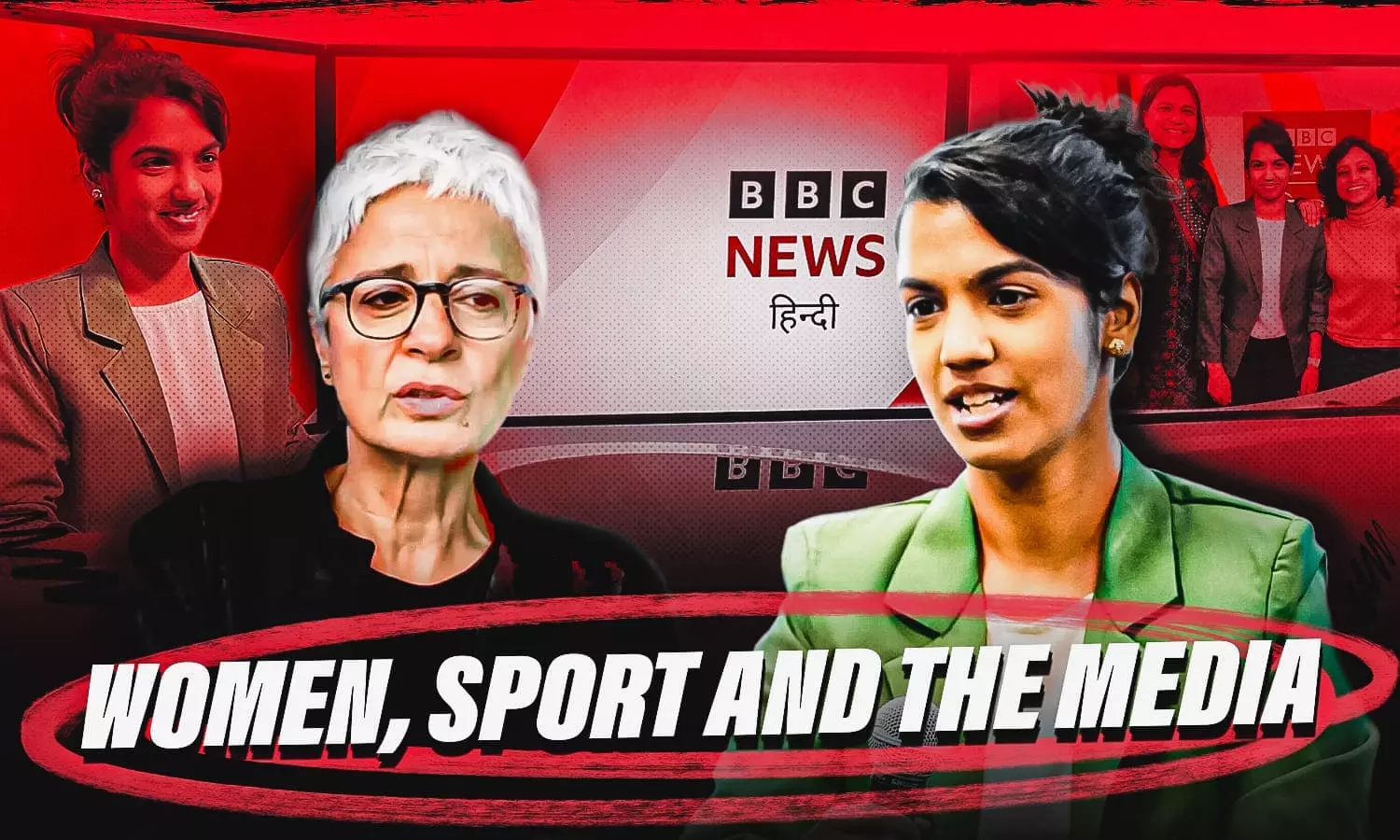Featured
Is it time to hear and see more Women in Sports Journalism?
Women’s representation and equal participation in the media shouldn’t be optional — it’s essential.

The Bridge at BBC News Panel Discussion on Gender representation in Media in Delhi.
Left: Liliane Landor Right: Enakshi Rajvanshi
Did you know women make up a mere 19% of experts featured in the news and 37% of reporters telling stories globally? Over the past eight years, the visibility of women in the media has only increased by half a percent! Women are rarely given the chance to lead discussions when it comes to topics like politics, economics or sports. This gender-imbalanced picture of society reinforces harmful gender stereotypes
The media must change how it reflects the world – but who can change the media itself?
In an attempt to tackle the underrepresentation of women in Indian media, BBC News brought together journalists, activists and broadcasters from across the country to discuss the transformative efforts required within the industry.
Representing The Bridge, as the only sports media panelist in a Closed-Door Panel Discussion led by Director of BBC World Service - Liliane Landor, I reflected on the need for gender sensitisation of media personnel in sporting events and how being a former athlete has helped me raise my voice against the objectification of female athletes.
There have been multiple instances in World sports where women were punished for not wearing something revealing. One such incident happened when Norway’s women’s beach handball team was fined 1,500 euros for wearing shorts instead of bikini bottoms in a Euro 2021 championship game.
Would a male and female journalist report and file this story in a similar manner?
“There’s a huge difference in the kind of stories that are chosen and in the way stories are written by a woman editor and a male editor in a newsroom. The same applies if you are someone from the LGBTQIA+ community or any marginalised community—everybody comes with their own lived experiences.”
Dhanya Rajendran, Founder of The News Minute, who was one of the other panelists, further highlighted the importance of inclusive newsrooms and the need for a media ecosystem that accurately reflects diverse voices.
Having worked on a collaborative project with BBC She last year, we at The Bridge had deep-dived into the story of first-ever Indian Women’s cricket disabled team through a short video documentary that took months of research to find the relevant players and experts in the space. Another challenge was to convince players who had a visible physical disability and came from marginalized communities to come on camera and voice the societal pressure they faced over the years.
But why was highlighting their story important even though the sport has barely any audience?
Because despite a lack of funds and a bleak future for their game, these women continued training for passion and chose to represent those who had not found the courage to break the shackles.
“Some voices are being silenced; our endeavour is to take those to the government and help democracy thrive. We want women from rural areas to become journalists, producers and filmmakers. We want to empower them to make their dreams come true”, explained Meera Devi, Bureau Chief at Khabar Lahariya, the country's only women-run brand of ethical and independent rural news, at the panel discussion.
Until the 1970s, press conferences were held in the team’s locker room for all sports except tennis. These locker rooms were men’s locker rooms where women were not allowed because they were seen as changing areas. Even today in the country, there are various instances where domestic cricket tournaments do not even have proper dressing rooms for their female athletes, let alone any washroom facilities for female journalists wanting to cover these tournaments.
But then for every such instance, there are women who have won despite all odds and are shining their own lights simply by being themselves or following their passion.A little girl running off from her own child marriage to becoming a National football player or a burn survivor turning into a trail-blazing sports broadcaster, these are the stories that can catalyze societal shifts toward greater equity and social justice.
What can one do differently to enable journalists to publish unbiased ground-breaking stories and create a media landscape that mirrors the rich diversity of human life and perspectives?
“Of course you need women in positions of responsibility to ensure this [fair representation of women], but it should not only be women's responsibility – it should be that of the whole ecosystem” Director of BBC World Service - Liliane Landor concluded at the event.
